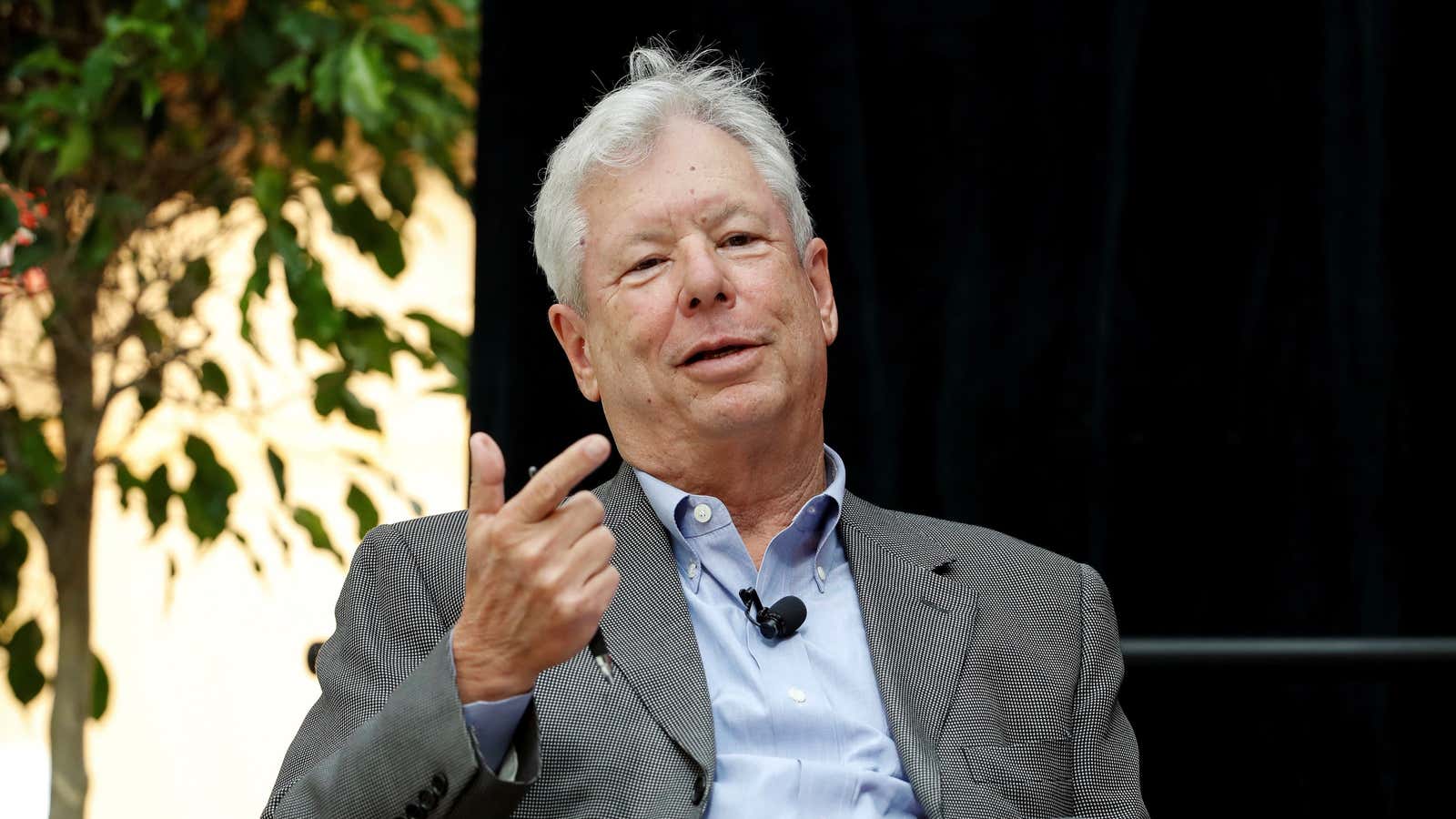Richard Thaler, the University of Chicago professor and recent Nobel laureate in economics, is perhaps best known for his work on mental accounting. This is the human tendency to mentally divide what is essentially one pot of money into different mental accounts with different purposes, values, and rules. If you’ve ever contributed to a savings account while maintaining credit card debt, or spent an unexpected bonus on an indulgence you wouldn’t have bought with your regular paycheck, you have engaged in mental accounting.
Thaler was asked to explain mental accounting in a recent interview (paywall) with the New York Times. He deferred, as he has before, to a one minute YouTube clip of an undated interview with actors Gene Hackman and Dustin Hoffman.
In it, Hackman tells a story about Hoffman asking to borrow money when the two men were broke young actors living in Los Angeles. Hackman went to his friend’s apartment and saw on a shelf several jars labeled with various household expenses: rent, electricity, etc. They were all stuffed with cash—save for the empty one labeled “food,” which Hoffman wanted money to fill. We’ll let them fill in the details (with saltier language than we’d use).
In one sense, Thaler explained, “you can think of [mental accounting] as dumb, as violating the economist’s basic assumption that money is fungible.”
But in a different, more practical sense, mental accounting is a smart move that helps keep spending and saving in line with priorities. He cited retirement savings as an example of a “stickier” account that rarely gets reallocated to different purposes. As for Thaler, he now has a new mental account for indulgent purchases: Nobel prize money.
